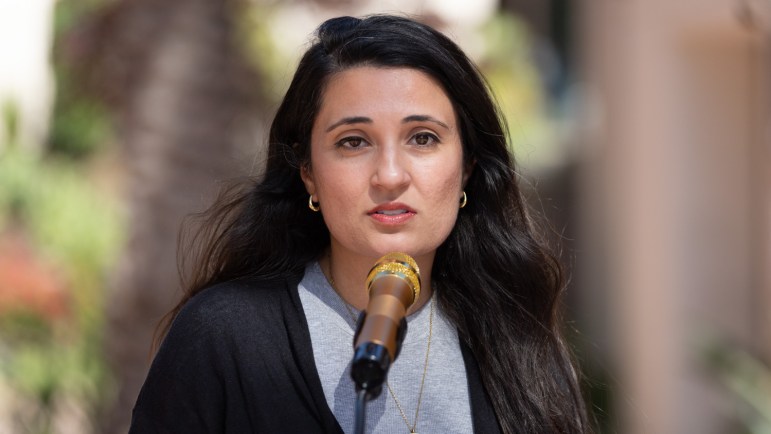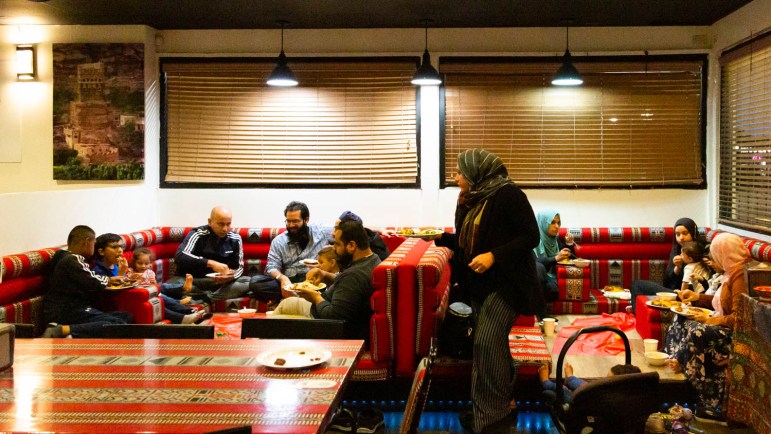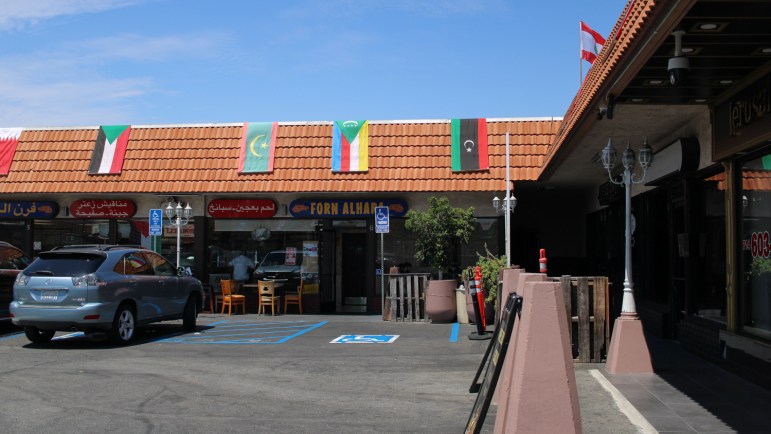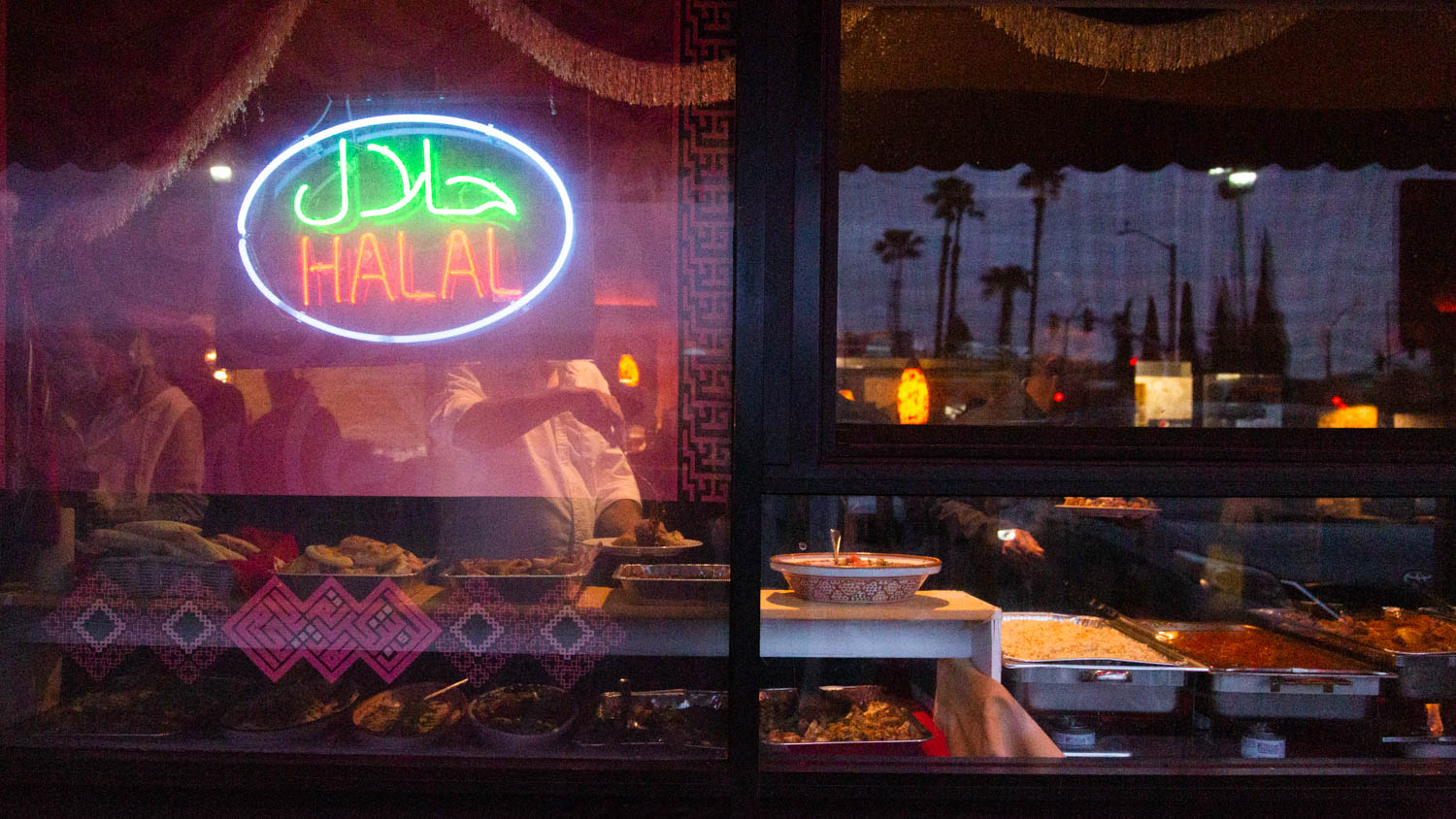A state bill recently signed into law by Gov. Gavin Newsom aims to shine a spotlight on the hidden inequities felt in one of California’s most diverse communities – Middle East and North African residents.
For Orange County – home to Little Arabia in Anaheim – the new law marks a turning point for the community, with some advocates noting the bill is a product of a more civically engaged Middle Eastern and North African community.
Amin Nash, a policy and research coordinator with the Arab American Civic Council who advocated for the bill, said the new law will require government agencies to collect data
that can save lives by tracking health trends in the Middle Eastern community.
“If there’s a deeper understanding of the community, you’ll be able to communicate with them better. Doctors who aren’t part of the Middle East or Arab community will have reliable data that can address the needs,” he said in a Wednesday phone interview.
“It’s like preventative medicine. You identify the problem early and then are able to rectify it.”
For years, California’s Middle Eastern and North African leaders like Nash have said the disparities their communities face in health, education, business assistance and civil rights protections have flown under the radar.
These issues, they say, have been made essentially invisible due to the Middle Eastern community being categorized as White in State and Federal data collection like the U.S. Census.
It’s that lack of specific data that led local health officials and statewide health experts to admit it was impossible to see what impact COVID-19 had on hundreds of thousands of Middle Eastern residents in California a couple of years ago.
A new law, AB 91, signed by Gov. Gavin Newsom on Oct. 6 will require state agencies in California that collect demographic data on ethnic origin to create a separate category for the Middle Easterners and North Africans or MENA starting January 1, 2028.
“California is home to a thriving MENA community that has too often been undercounted and underrepresented,” said Democrat Assemblymember John Harabedian, an Armenian American legislator who introduced the bill, in an Oct. 6 news release.
“When our community is overlooked they lose resources, voice, and influence. We cannot wait any longer to be recognized. California must lead on MENA recognition, fight for accurate data, and set the standard for inclusion.”
[Read: Casting a Light on the Hidden Inequities in OC’s Middle Eastern Community]
 Basha Jamil, Council on American Islamic Relations – Greater Los Angeles, speaks to reporters on May 21, 2025. Credit: JULIE LEOPO, Voice of OC
Basha Jamil, Council on American Islamic Relations – Greater Los Angeles, speaks to reporters on May 21, 2025. Credit: JULIE LEOPO, Voice of OC
Basha Jamil, policy manager for Council on American Islamic Relations’ greater LA chapter, said the new law could mean more critical resources directed to the MENA community.
“It would impact our communities’ access to state resources and make sure that funding and different programs actually come to the communities that actually need them,” she said in a Wednesday phone interview.
“It’s building the foundation for even better policies and protections for our communities.”
Jamil added the data will help civil rights advocacy groups like CAIR to better serve the community by better understanding how the community is facing discrimination in the public school system or how they are targeted for surveillance.
She also said had that data been collected prior to 2020 Middle Eastern business owners would have been able to access more government financial assistance and loans during the pandemic.
Jamil said the data will also help legislators and elected officials develop public policy.
“We know that lawmakers will be able to create policies that are actually tailored to the needs of their communities whether that’s related to public health, to education, even things like emergency disaster relief,” she said.
“It’s just good policy to make sure that we’re actually counting all Californians.”
Counting MENA: New Law’s Impact on OC
 Families gather during Ramadan in a restaurant located in Little Arabia on April 22, 2021. Credit: JULIE LEOPO, Voice of OC
Families gather during Ramadan in a restaurant located in Little Arabia on April 22, 2021. Credit: JULIE LEOPO, Voice of OC
Nash said it might not be until 2029 when government agencies start making use of the data and that the sooner they implement the new law, the better understanding officials will have on a community of hundreds of thousands people in the state.
“The big impact is down the line that information from them checking a simple box will give agencies that don’t really know too much about the Middle East and African population more of an idea of the needs of the community,” Nash said.
He adds it was a low budget community effort in Orange County that helped create the statewide change.
The new law comes on the heels of local efforts to understand what health disparities and government funding gaps are facing the community.
A host of local organizations that specialize in either charity, advocacy or health and supportive services launched a collective in 2023 with help from a CDC grant to address health inequities and quality of life issues in the South Asian, Middle Eastern and North African communities in Orange County.
[Read: Tackling Health Gaps in OC’s South Asian, Middle Eastern and North African Communities]
The MENA community encompasses Arabs, North Africans, Sudanese, Djiboutians, Mauritanians, Somalians, Kurdish, Amazigh, Berber, Chaldean, Circassian, Assyrians, Turks, Iranians, Afghans, and Armenians.
There are roughly about 32,000 Iranian Americans, about 30,000 Arab Americans and 6,000 Armenian Americans in Orange County, according to American Community Survey data collected by the U.S. Census Bureau.
Calls For Data – A Continued Demand For Visibility
 Shops within the Little Arabia District on Aug. 2, 2024. Credit: ERIKA TAYLOR, Voice of OC
Shops within the Little Arabia District on Aug. 2, 2024. Credit: ERIKA TAYLOR, Voice of OC
For years, OC’s Middle Eastern & North African leaders have fought for this data collection, arguing that without it their communities are overlooked by federal and state agencies when it comes to funding resources for health care access, education and business grants.
Last year, the California MENA Inclusion Act, a similar bill to Harabedian’s introduced by former Assemblyman Bill Essayli, a Republican, ended up getting suspended by the State Assembly Appropriations Committee amid budgetary concerns.
But local advocates ran into political roadblocks in Sacramento.
Nash said politics is what kept now-federal prosecutor Essayli’s bill from passing last year – leading to ramped up education efforts by advocates in Orange County to help it move along this year.
“Bill Essayli – he’s not liked up there. We had to learn Sacramento is primarily Democrats and we needed a good Democratic Representative so the big change from last year and this year was changing the author,” Nash said.
“We really wanted a community to be involved and that was a big difference that we made compared to the year before – going directly to the community and educating them how to get involved and how to prepare them.”
Jamil said the bill got bipartisan support this year.
The push for more data hasn’t just been at the state level.
The 2030 U.S. census will include a MENA category for the first time after decades of advocacy by Middle Eastern and North African American leaders across the country.
[Read: OC’s Middle Eastern Community Will Finally Get Counted in Next Census]
 Cookies inspired by the new Little Arabia freeway sign were available for those that attended the unveiling ceremony on September 19, 2024. Credit: FASHION CASTILLO, Voice of OC
Cookies inspired by the new Little Arabia freeway sign were available for those that attended the unveiling ceremony on September 19, 2024. Credit: FASHION CASTILLO, Voice of OC
Nash said they debated just waiting for the 2030 census to let the data collection begin after Essayli’s bill died last year, but community support helped continue their efforts.
For Nash, passage of the bill is indicative of a tide change in the decades-long push for greater visibility and recognition of Middle Eastern Americans – one he says started to shift with the official recognition of Anaheim’s Little Arabia three years ago.
He also adds that in recent years more Arab Americans have become active in civics and social advocacy, leading to a better understanding of the legislative process – helping open doors for their community members and garner greater acceptance.
“It took us coming together and throwing ourselves in the fire to learn how to do it in a way that represents the community. Hopefully other generations will be able to see that and follow,” Nash said.
“A checkbox is nice, but it’s just the beginning.”
Hosam Elattar is a Voice of OC reporter and corps member with Report for America, a GroundTruth initiative. Contact him at helattar@voiceofoc.org or on Twitter @ElattarHosam.
Related

